Review: Ister Night Train Budapest to Bucharest
This review details a trip on the Ister night train from Budapest (Hungary) to Sibiu, Brașov and Bucharest (Romania) in a private sleeper.
Night train to Romania
CFR Călători, the Romanian Railways, operates three distinct night trains from Hungary to Romania, all taking a slightly different route.
The Muntenia night train (train number IRN 78/79) connects Budapest to Bucharest via Timișoara and Craiova.
On the other hand, the Dacia night train (IRN 346/347) includes Budapest on its route from Vienna to Bucharest and also stops at Alba Iulia, Sighișoara and Brașov.
The night train I would be taking is the Ister (IRN 472/473), which commences its journey at Budapest Keleti station and travels to Bucharest via Deva, Sibiu, and Brașov.
In addition to the three night trains operated by CFR Călători, the Romanian Railways, there is also a fourth night train from Hungary to Romania, which is operated by the Hungarian Railways (MÁV).
This is the “Corona” night train (IRN 406/407) which links Budapest with Brașov via Cluj-Napoca and Miercurea-Ciuc.
In some timetables and on certain booking websites, these trains are labelled as D or IC category trains with the same train numbers (eg. IC 472/473 for the Ister).

Booking the train
Tickets for all night trains operating between Romania and Hungary can be booked online through the websites of both CFR Călători and MÁV.
Advanced tickets for travel between Budapest and Bucharest are available for as low as €35 for a second-class seat, €50 for a berth in a 4-person couchette compartment, €84 for a bed in a shared 2-person sleeper compartment and €154 for a private sleeper.
After booking, you will receive a PDF e-ticket that you can present to the train attendant when boarding the train.
Travellers with an Interrail or Eurail pass are required to pay a €3 seat reservation fee if they wish to travel in a 2nd class seat.
A supplement of about €20 is required for a berth in a 4-person couchette, while a bed in a shared 2-person sleeper will cost €42.
The Interrail supplement for a single sleeper is €98, but it’s important to note that a first-class pass is required for this option.

Booking trick
However, I managed to significantly reduce my fare by using a split ticketing trick.
You can book a 2nd class ticket from Hungary to the first station in Romania and then purchase a separate ticket for a couchette or sleeper compartment from there to your Romanian destination
This method allowed me to take advantage of the much cheaper domestic Romanian tariffs for berths in a couchette or sleeper compartment, which are not available for international journeys.
As a result of using the split ticketing trick, my total cost was only €13.75 for a second-class ticket from Szolnok, where I started my journey, to the border station of Curtici, plus an additional €62 for a private sleeper compartment from Curtici to Bucharest.
Adding up the costs, my journey from Szolnok to Bucharest totalled only €76 EUR using the split ticketing trick compared to the €154 I would have paid without it.
That’s €78 saved!
Of course, there is a disadvantage to using split ticketing as you can only switch from your 2nd class seat to your sleeper compartment once the train reaches Curtici.
However, this didn’t bother me since the stop at this border station was just before midnight and I wouldn’t have gone to sleep before the completion of passport control formalities anyway.
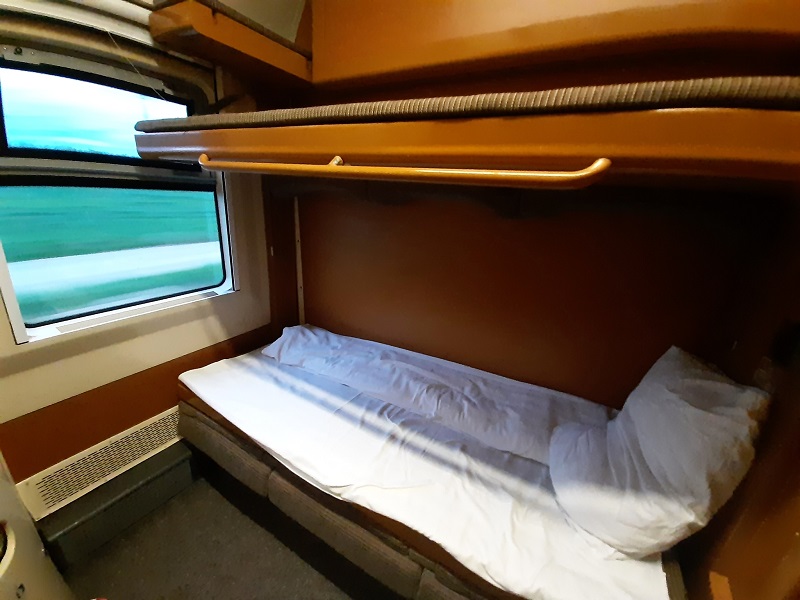
Taking the Ister train
Now that we’ve taken care of all the logistics, let’s explore what it’s like to actually take the Ister night train from Budapest to Bucharest!
The Ister leaves Budapest Keleti station at 7.10pm and makes its first stop in Szolnok at 8.33pm, the city where I would board the train.
This would be the final train ride of my epic rail journey to Ukraine and back and I was certainly looking forward to it.


Szolnok to Bucherest by CFR Călători Night Train
Train IRN 473 ‘Ister’ – Departure: 8.33pm – Arrival: 11:59am (+1 day)
Duration: 14h26m – Distance: 754 kilometres
Price: 76 euro
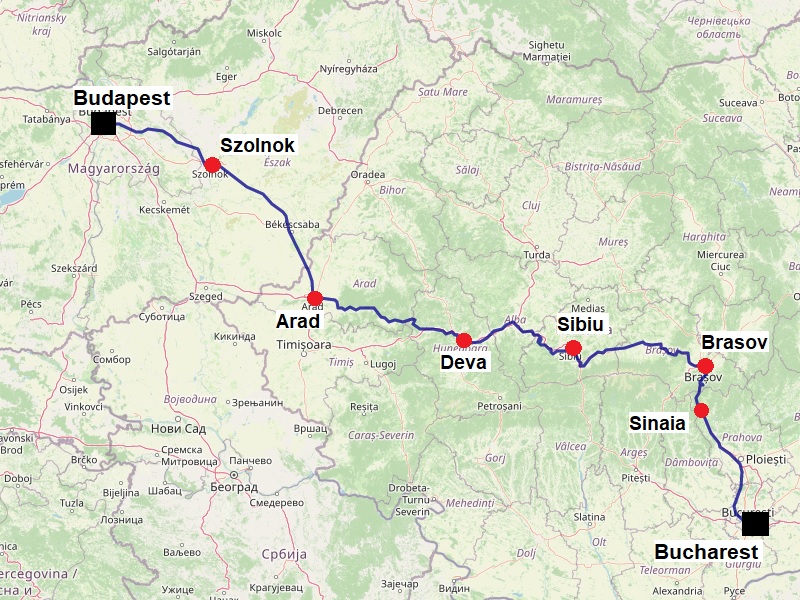
Boarding the train
The Ister night train arrived on the dot at the chilly platform of Szolnok station.
I was certainly happy that I could take my seat in the comfortable 2nd class seating wagon of the Ister, which was remarkably empty.
Two power sockets are available at every bay of four seats, so I took advantage of this and plugged in my laptop to get some work done during the first part of the journey.
There is no Wi-Fi internet on the train but 4G coverage along the route is good.
Of course, I also cracked open a beer which I had bought in Szolnok before I boarded the train.
The Ister night train does not have a dining car so you are well-advised to bring plenty of food and drinks with you on board.

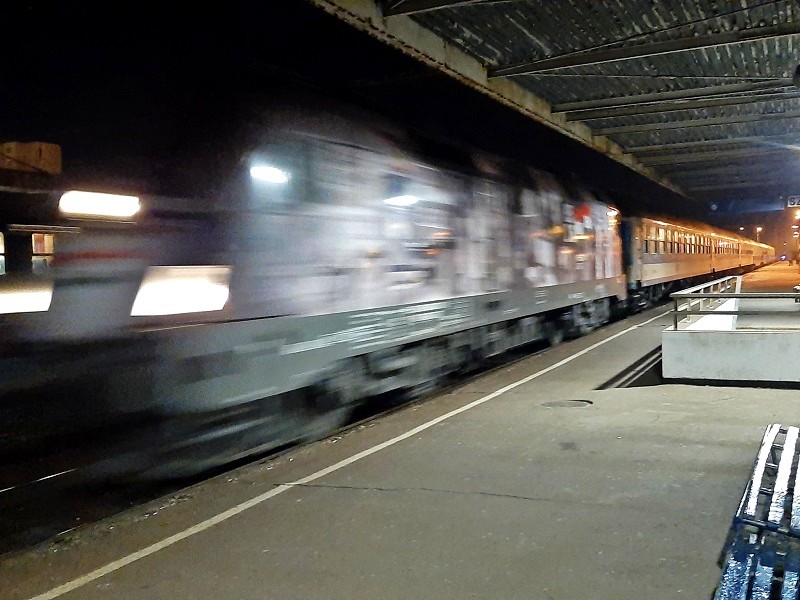
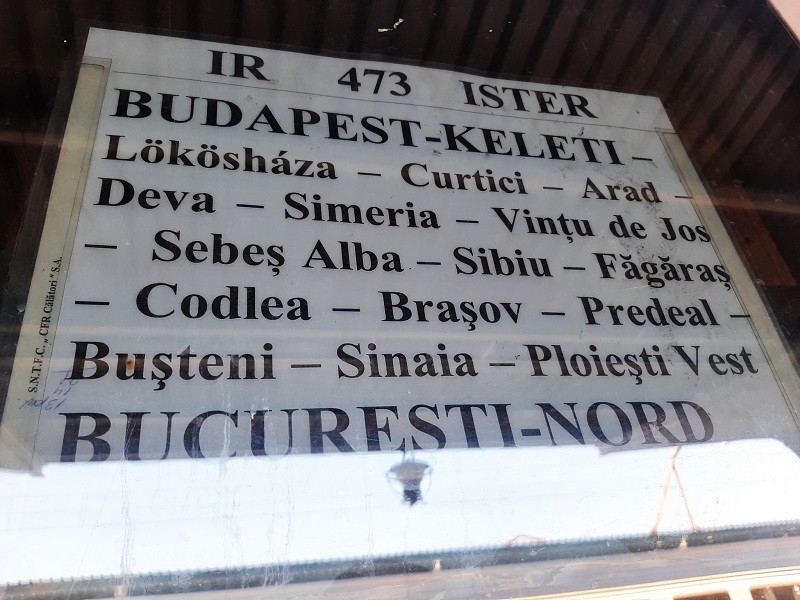
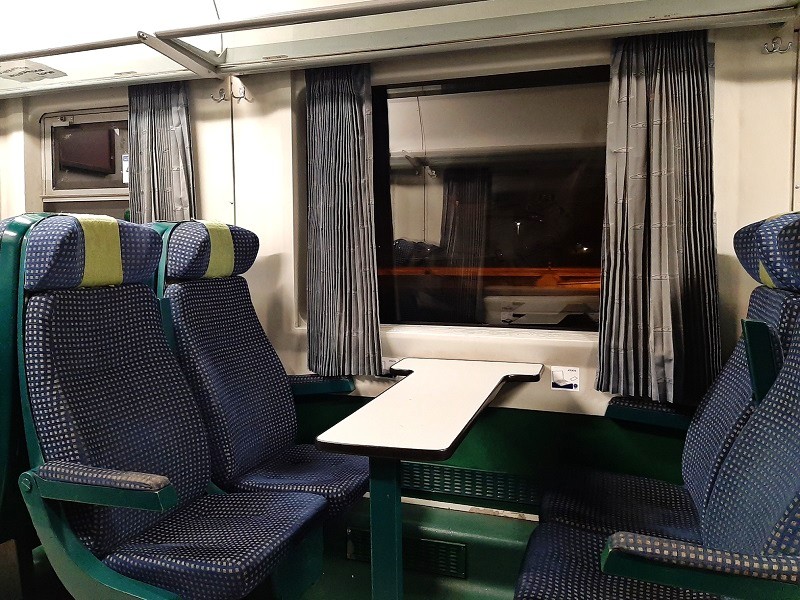

Towards the Romanian border
As my journey was in the midst of winter, it was already dark when the train departed from Szolnok.
Even if you were to travel during the summer, you wouldn’t miss much as the scenery in this region of Hungary is quite monotonous with views over flat and featureless fields.
At 10.19pm, the Ister arrives at the Hungarian border station of Lököshaza, where Hungarian border guards will board the train to carry out passport control.
Around 20 minutes after the Hungarian border control at Lököshaza, the Ister continues to the Romanian border station of Curtici.
It’s important to note that Romania is one hour ahead of Hungary, so although the timetable may indicate a 1 hour and 10 minute journey from Lököshaza to Curtici, in reality the trip only takes 10 minutes due to the time difference.
Romanian border guards will board the train at Curtici for passport control and you will again remain in your seat or compartment during this process.

Private sleeper
As the train left Lököshaza for Curtici, I headed from the 2nd class seating carriage towards the sleeper wagon located at the front of the train.
If you travel in a private sleeper compartment (known as a ‘single’), you will have a two-person compartment all to yourself.
As CFR has different types of sleeper wagons, it is impossible to know in advance which one will be assigned to your train.
Although all sleeper wagons on CFR trains offer similar levels of comfort and facilities, there may be some minor differences between them.
During my journey, I had the misfortune of being assigned to one of the CFR sleeping wagons that I like least, due to the presence of a backrest which significantly reduces the width of the lower bed.
However, if you’re traveling solo you can easily avoid this issue as you have the option of sleeping in the upper bed and using the lower bed as a seat or lounger.




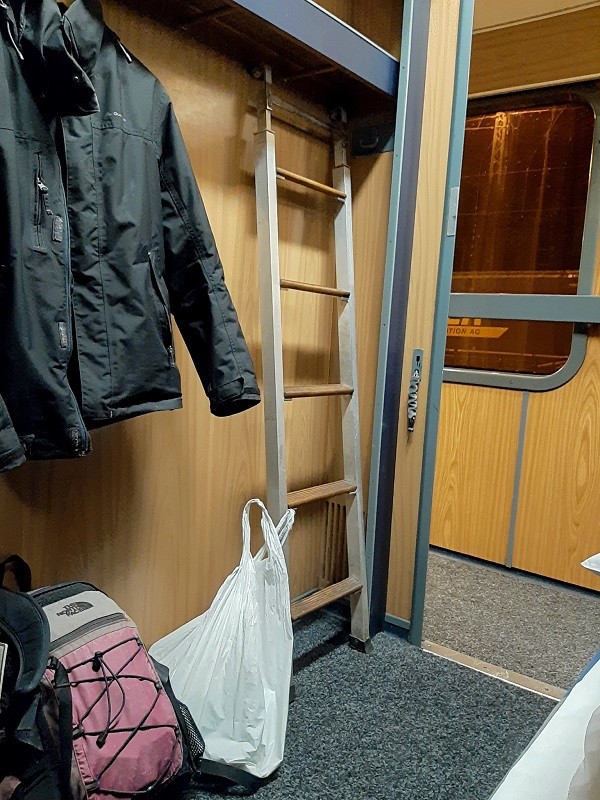
Sleeper compartment facilities
Each sleeper compartment is equipped with a small washbasin that can also be used as a bedside table when you close the lid.
Located above the washbasin, you will find a small bathroom cabinet with a mirror which typically contains one complimentary bottle of water and an amenity kit per person.
Don’t expect too much from the amenity kit, as it only includes basic items such as a washcloth, wet wipes, soap, a toothbrush and some toothpaste.
You’ll find shared toilets at the far ends of each carriage.
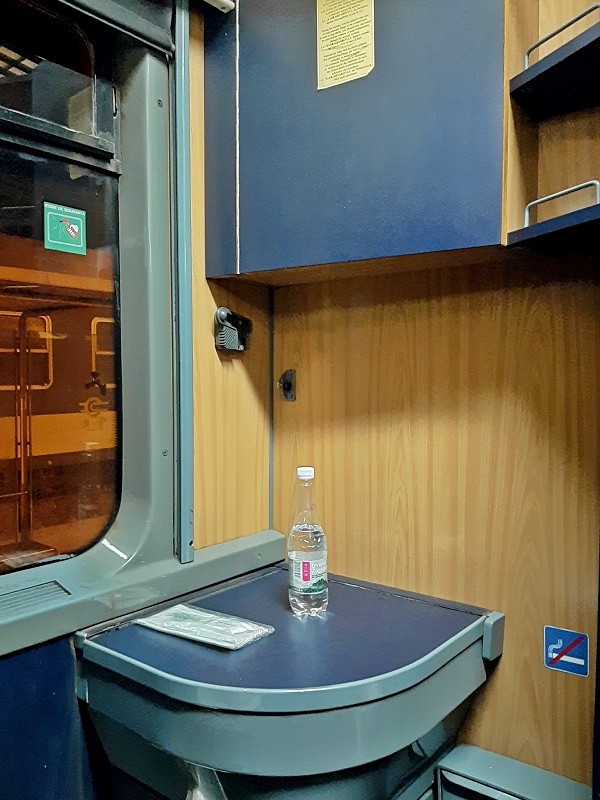
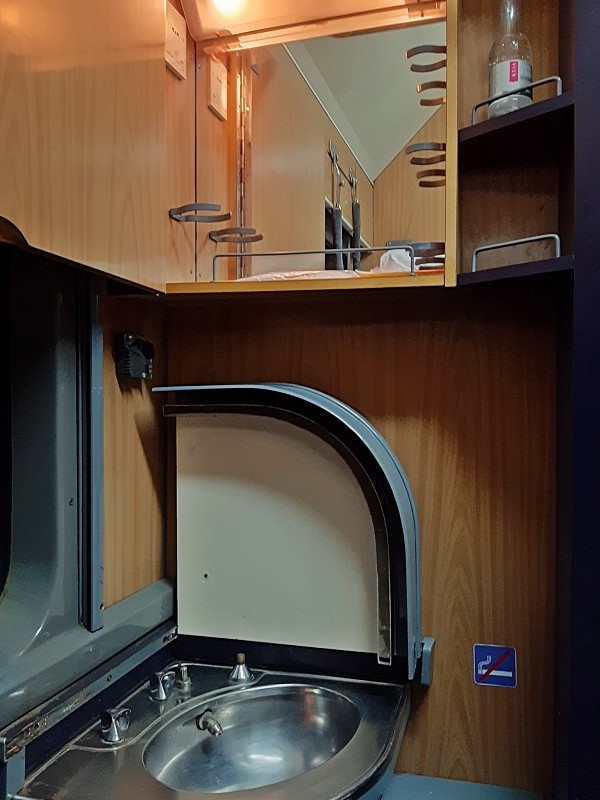
Early morning wake-up
I managed to have a great night of sleep in the comfort of my own compartment.
Although I had the option to sleep in since the Ister train was scheduled to arrive in Bucharest at noon, I decided to set my alarm early to take in the scenery.
Upon opening the window shades, I discovered that the train had already left Sibiu and was heading towards the station of Podu Olt, where it would soon cross a bridge over the River Olt.
Unlike Hungary, the Romanian landscape was completely covered in snow.
Only on night trains can you experience the surprise of waking up to completely different surroundings than the views you saw before going to bed the night before.
Although the views were still obscured by the morning mist, the ride on the Ister night train between Hungary and Romania was again a perfect example of this.
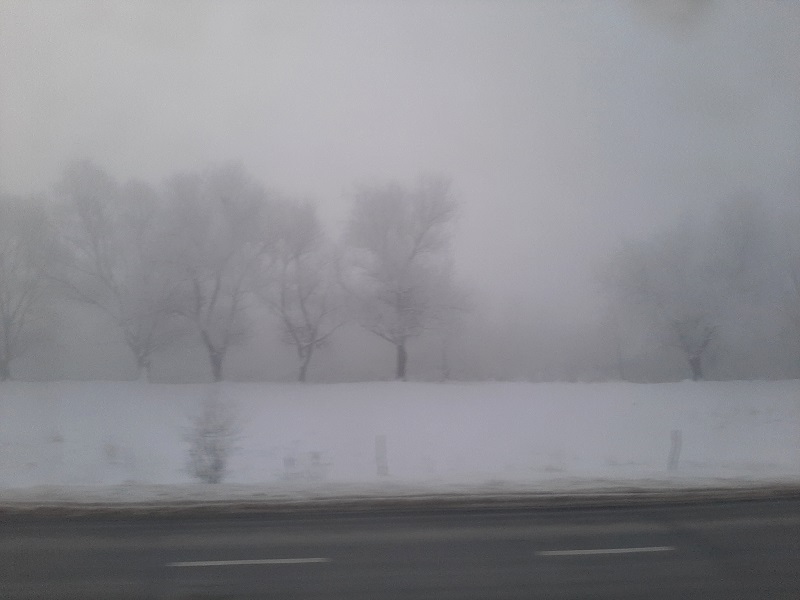

Carpathians
The railway line connecting Sibiu and Brașov runs parallel to the Carpathian Mountains, providing clear views of the range if you look out on the right-hand side of the train.
When the morning fog finally cleared away I was treated to some wonderful view of the distant Carpathians.
Although the visibility still wasn’t the best, I could clearly see the silhouettes of the mountains.
Outside the temperature was -10 degrees Celsius, but fortunately I was snug inside my heated compartment.
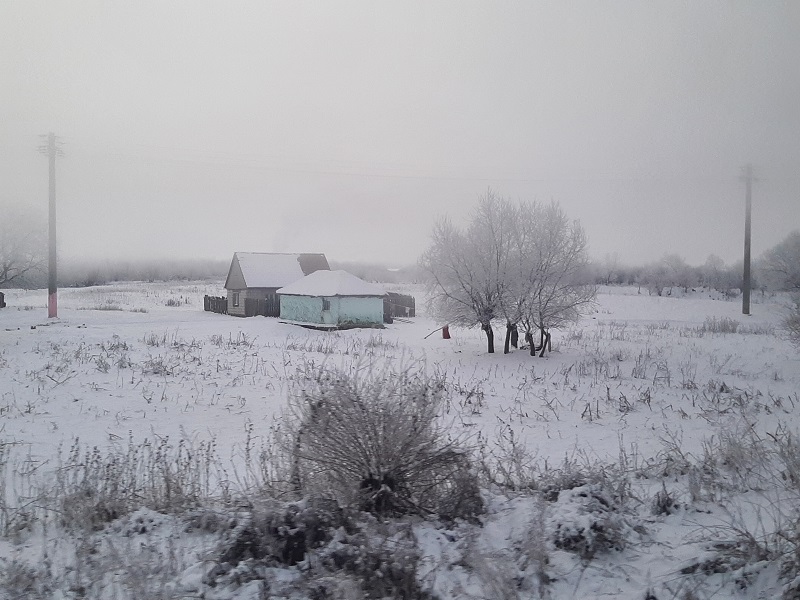
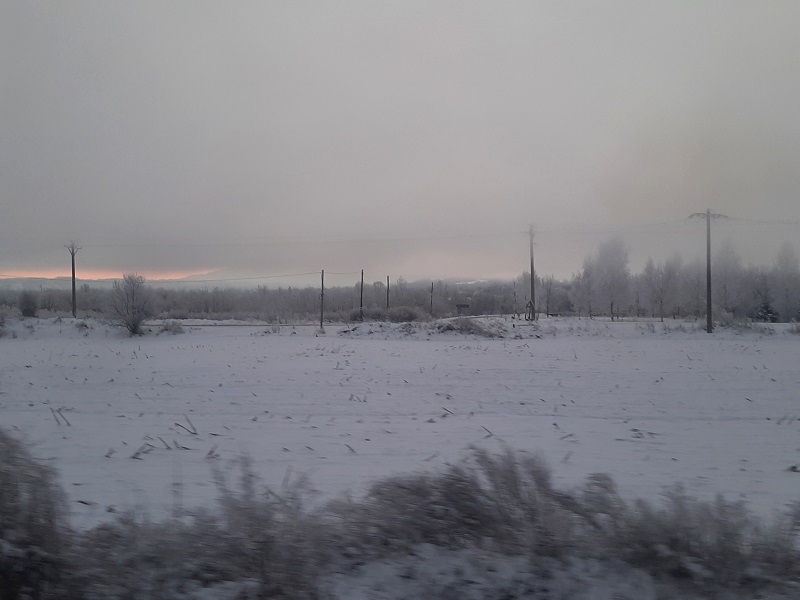
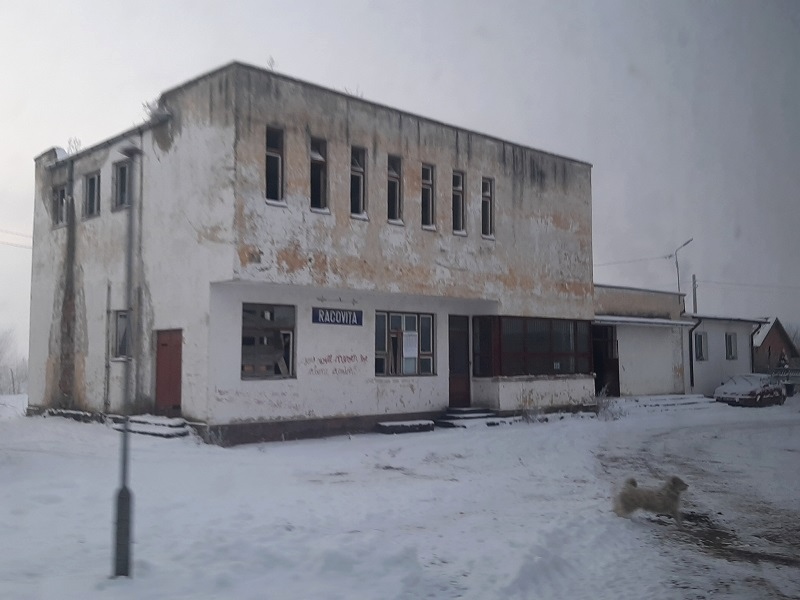



Sunrise views
I was absolutely glued to the window as the views over the distant Carpathians and the wonderful winter landscapes were mesmerising.
At a certain moment, the sun emerged from behind the mountains, casting a spectacular light on the already beautiful landscape.

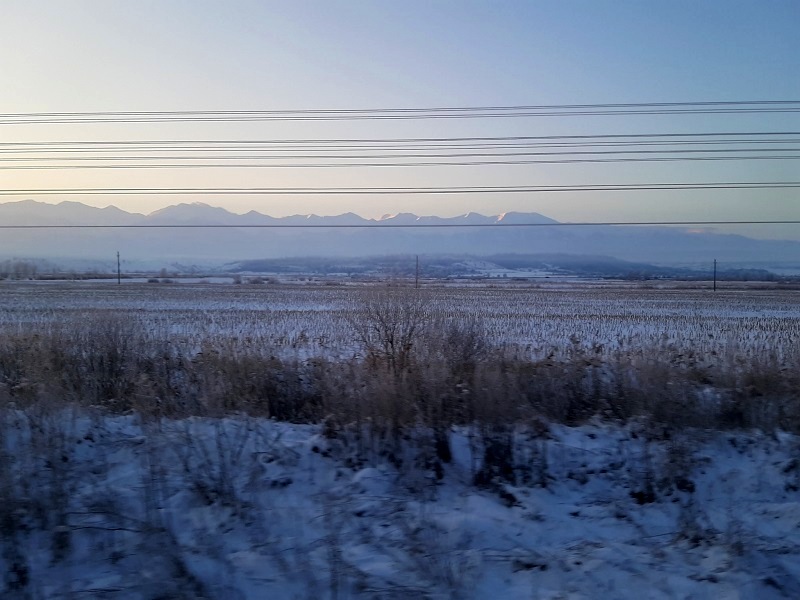
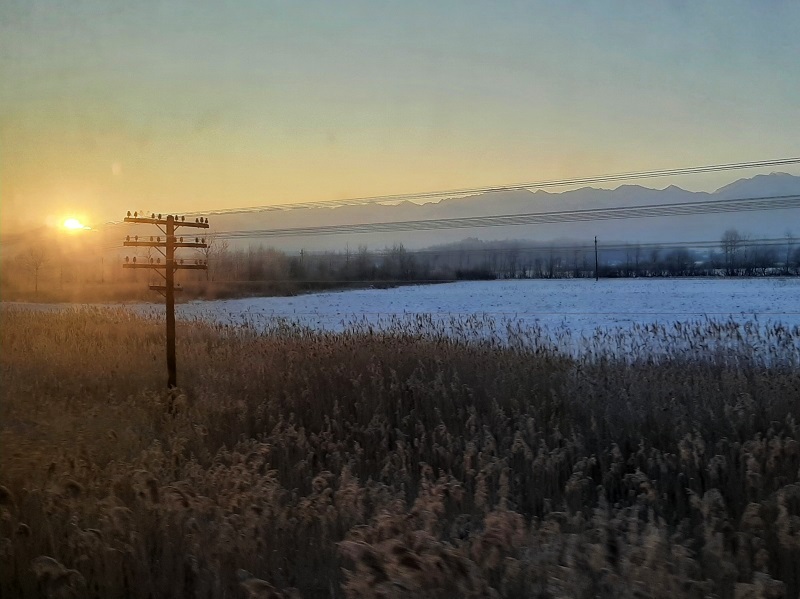





Towns and villages
Between Sibiu and Brașov, the Ister night train will ride non-stop through all kinds of different towns and villages such as Avrig, Porumbacu de Jos and Ucea.
It’s good fun to see all the different stations from the window, ranging from the unattractive communist-era structures to the more elegant ones resembling stately homes.
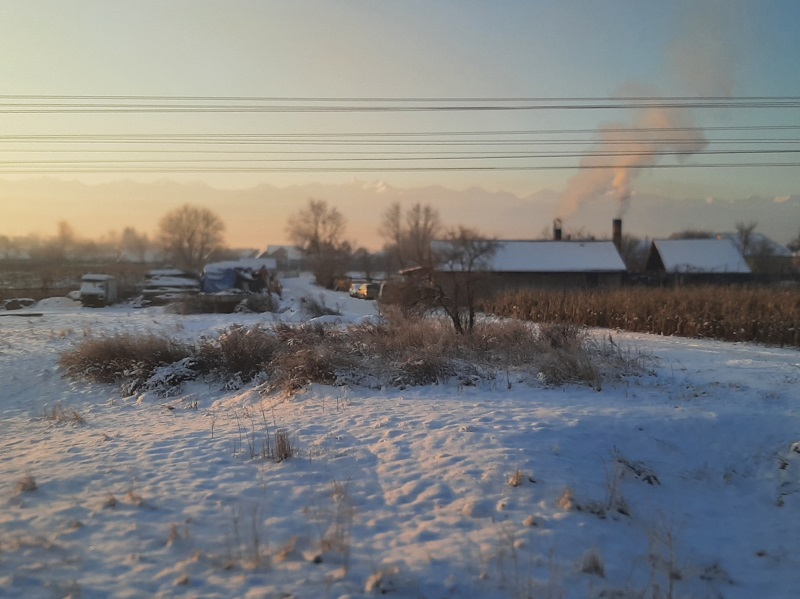
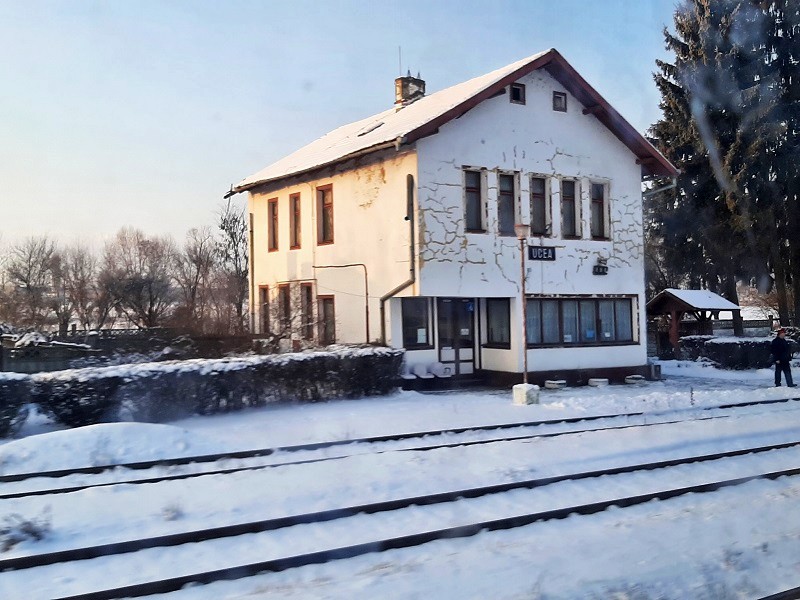
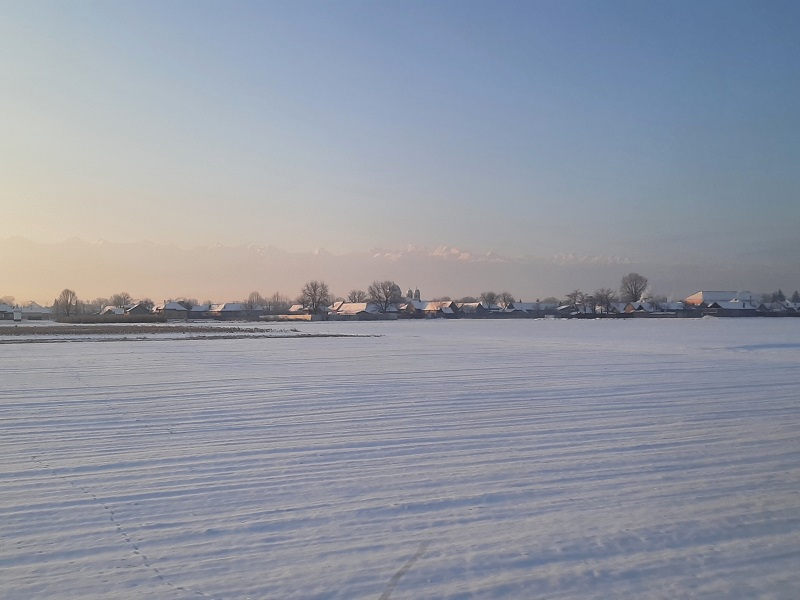
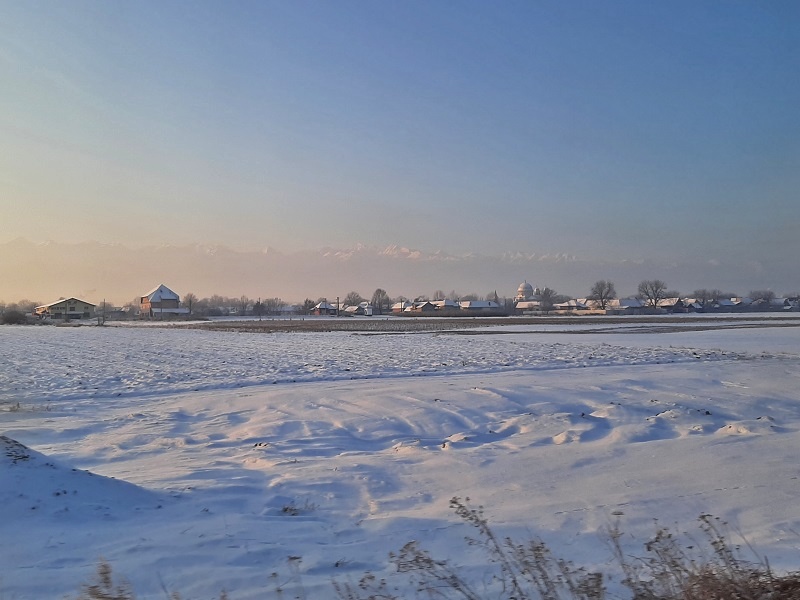

Făgăraș
After the sun had fully risen, the weather suddenly became foggy again.
With the mist, the Transylvanian countryside did however take on an even more mysterious appearance.
After a while, the Ister stopped at the station of Făgăraș, the only city where this night train halts between Sibiu and Brașov.


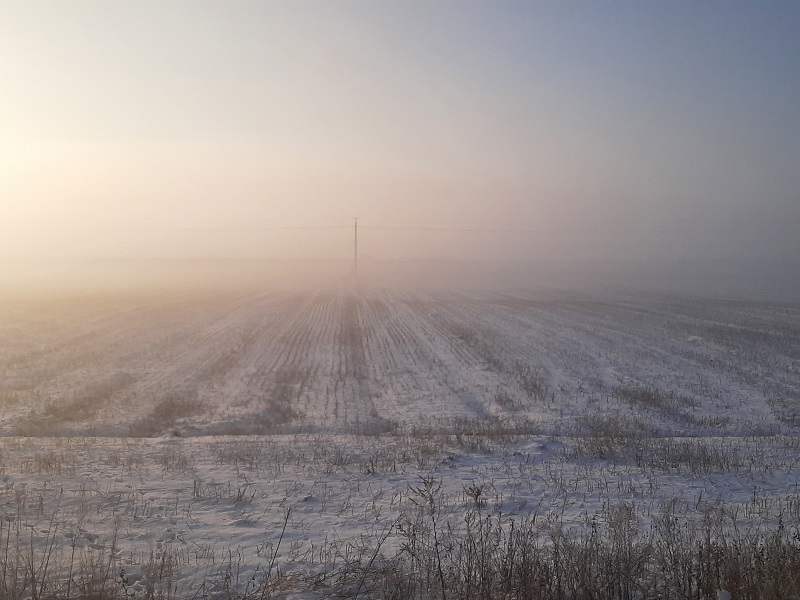

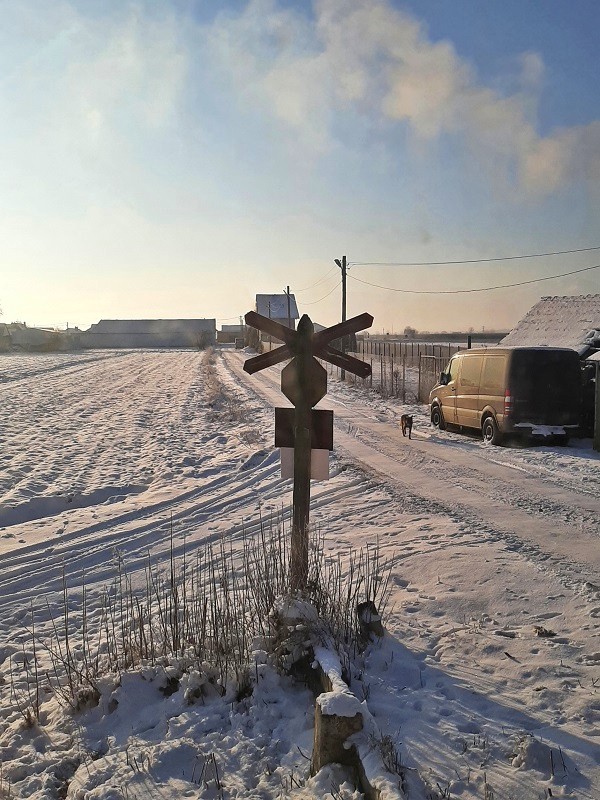
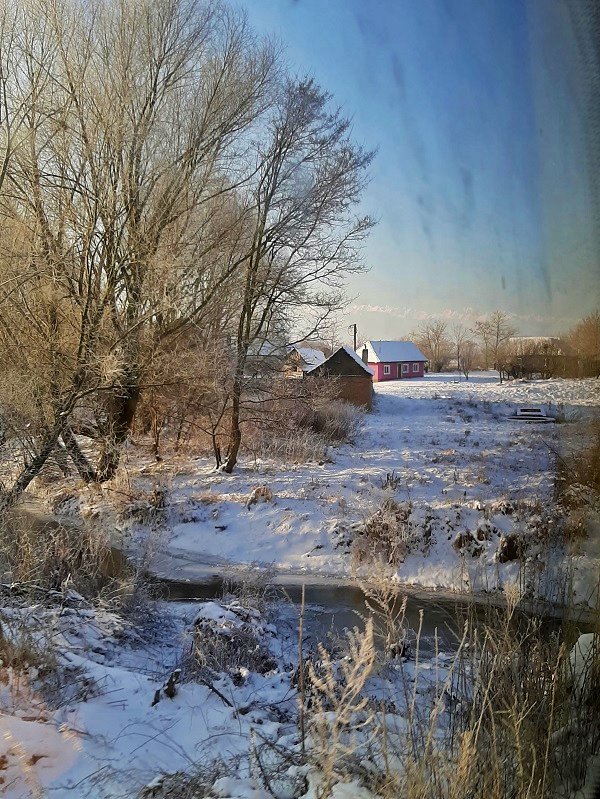
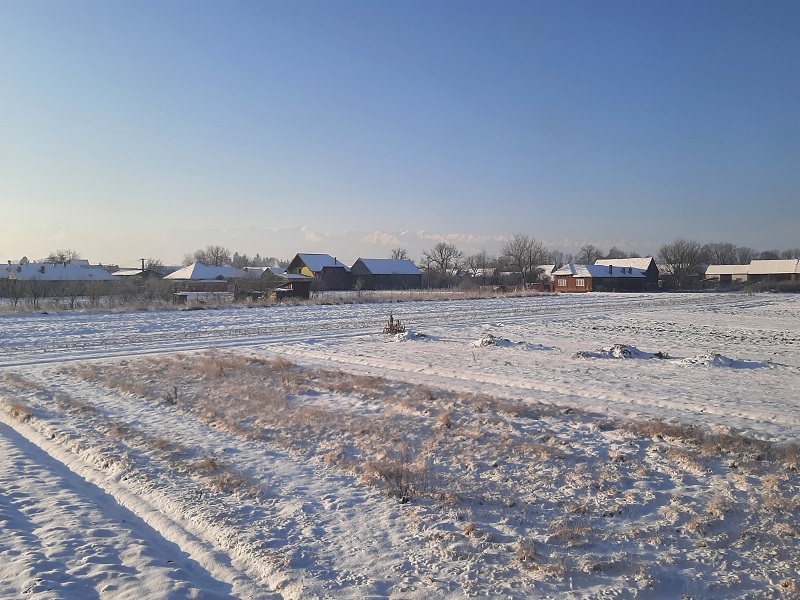
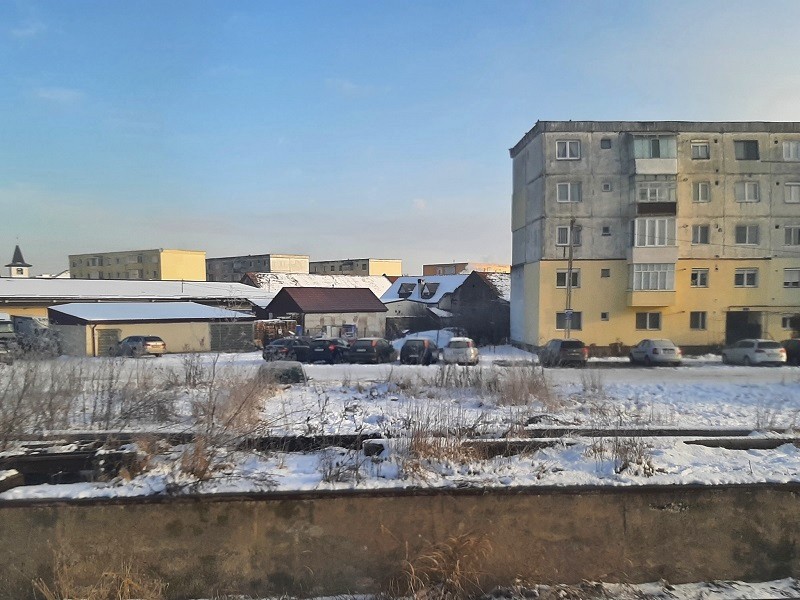

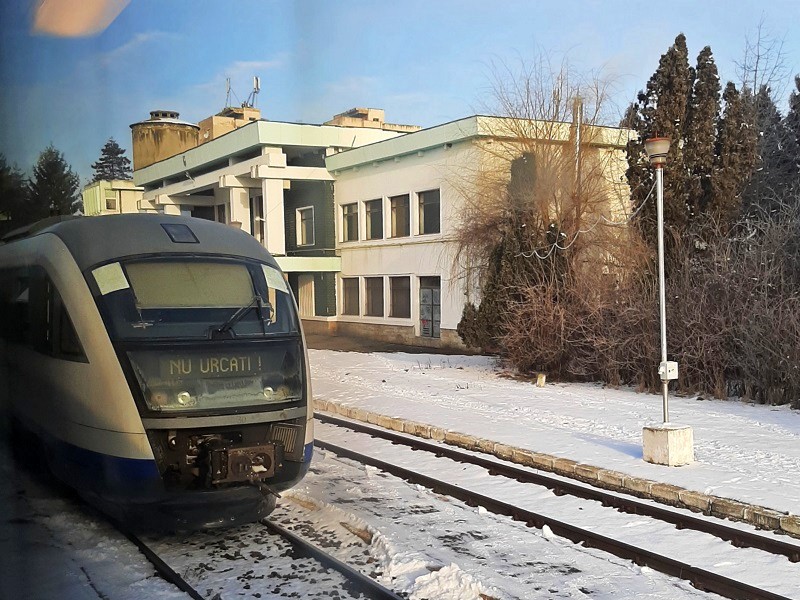
Onwards to Brașov
Between Făgăraș and Brașov, the scenery turns a bit more boring as the mighty Carpathians temporarily disappear out of view.
As I started to feel a bit tired again due to my early alarm clock, I decided to take a short nap.
Just prior to our arrival in Brașov, a significant stop for the Ister night train during its long journey from Budapest to Bucharest, I woke up once again.
As the train usually makes a 10-minute stop at Brașov as long as it’s not running late, you may even have some time to stretch your legs on the platform.

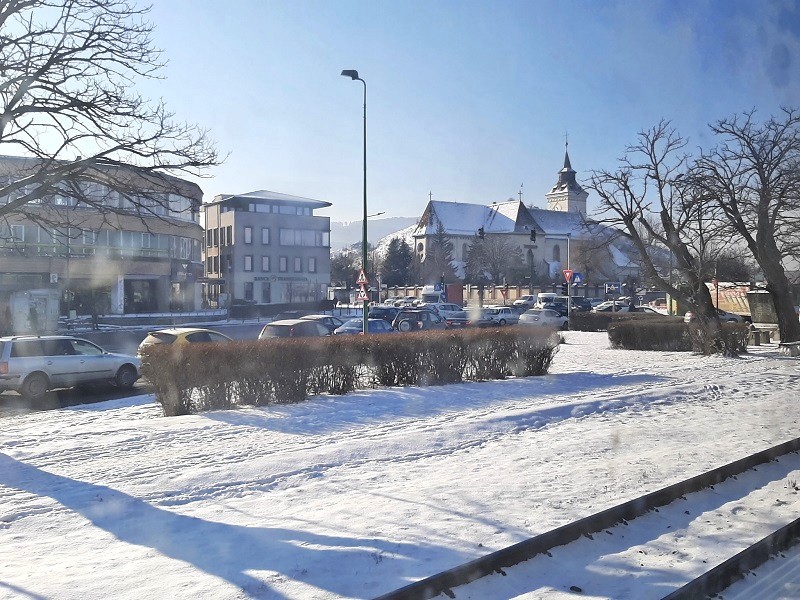

Crossing the Carpathians
After the stop at Brașov, the Ister night train will head south on the main Brașov to Bucharest railway line across the Carpathians.
Almost as soon as the train leaves the suburbs of Brașov behind it will start climbing up into the Carpathian Mountains.
Although the forest coverage often obscures the views, there are occasional glimpses of breathtaking scenery during the climb up, especially on the left-hand side when travelling south.
Eventually, the train will go through a long tunnel and emerge at the top of the mountain past just before it reaches the station of Predeal.
At an altitude just over 1,000 metres above sea level, this is not only the highest point of this railway line, but of the entire Romanian passenger rail network.
This point also marks the Carpathian watershed and the border between the historic region of Transylvania and Wallachia is just to the south of it.
Predeal itself is a famous ski resort in Romania and the first in a series of Carpathian mountain resort towns where the Ister night train makes a halt.


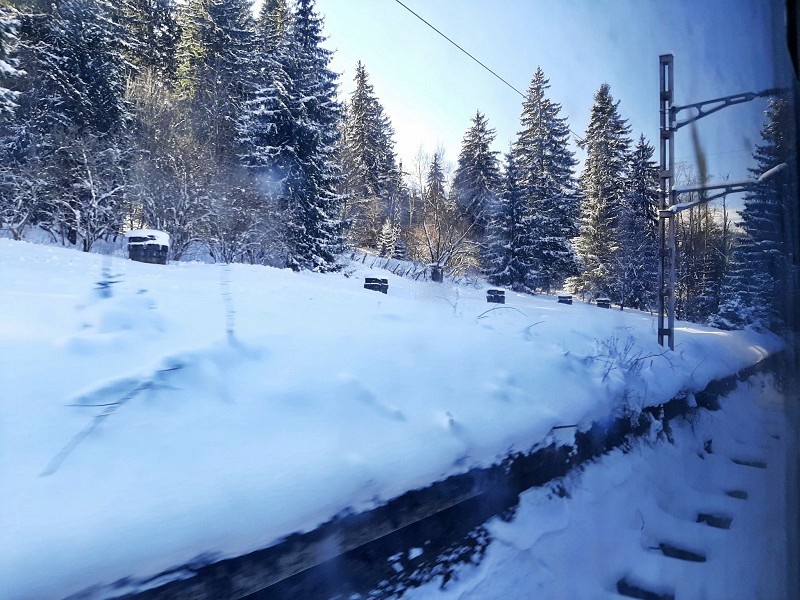
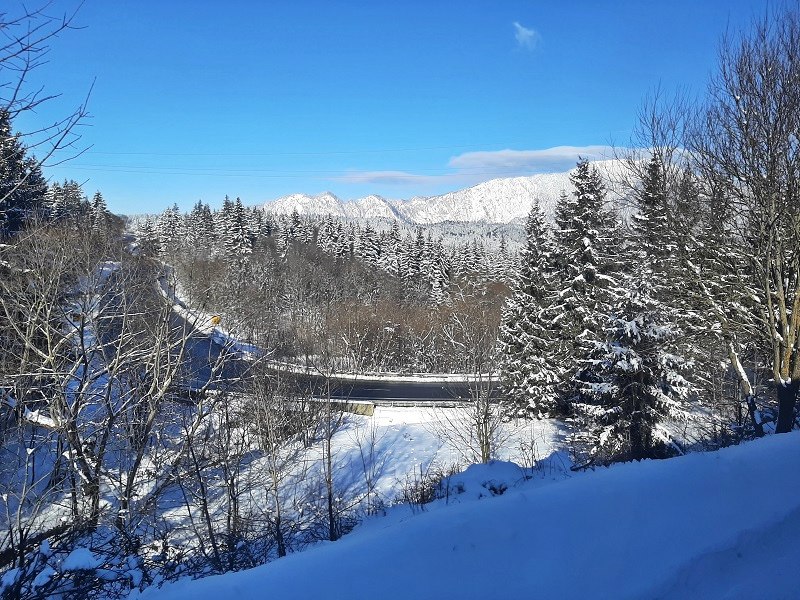



From Predeal to Bușteni
Between Predeal and Bușteni, the Carpathian mountain scenery truly begins to show its majestic beauty.
From this point on, the best views are on your right-hand side when travelling south to Bucharest.
After a short stop in the small resort town of Azuga, the Ister train continues its ride towards Bușteni.
The visibility was brilliant on this gorgeous winter morning and all the Carpathian peaks were clearly visible.
As the train reaches Bușteni you will enjoy some terrific views of Caraiman Peak, a 2,384-metre (7,822 ft) high mountain topped with a summit cross.
The stretch is definitely one of the highlights of Romanian train travel.

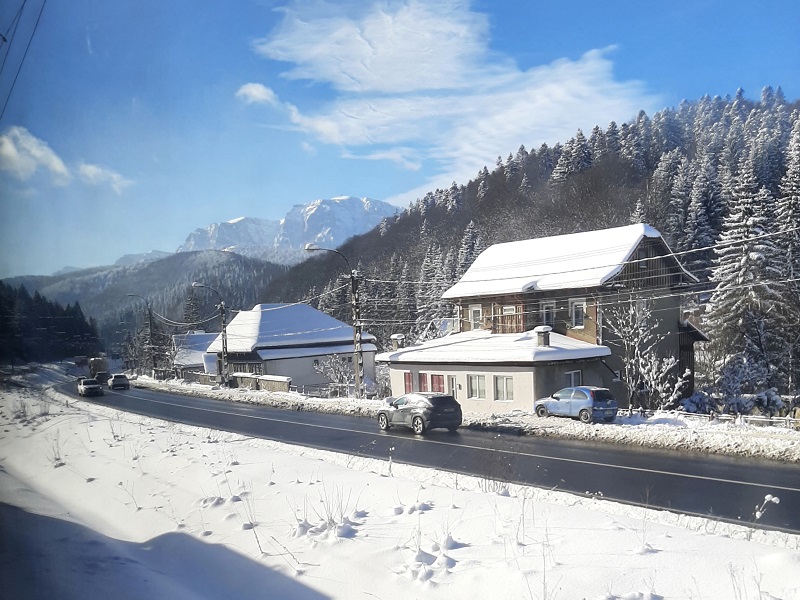
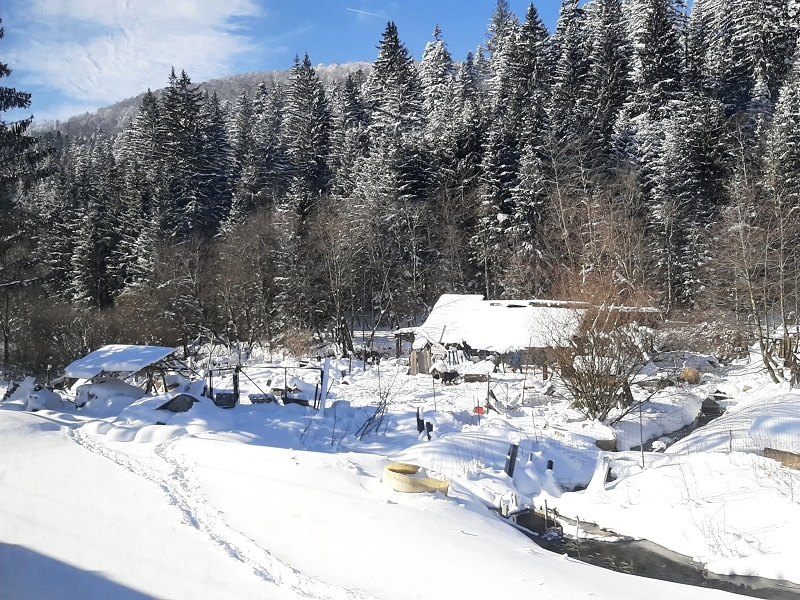

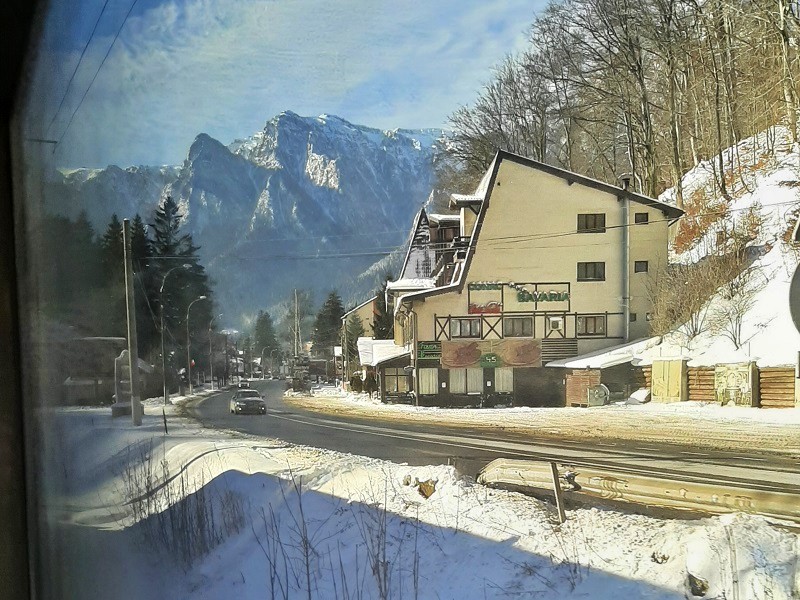
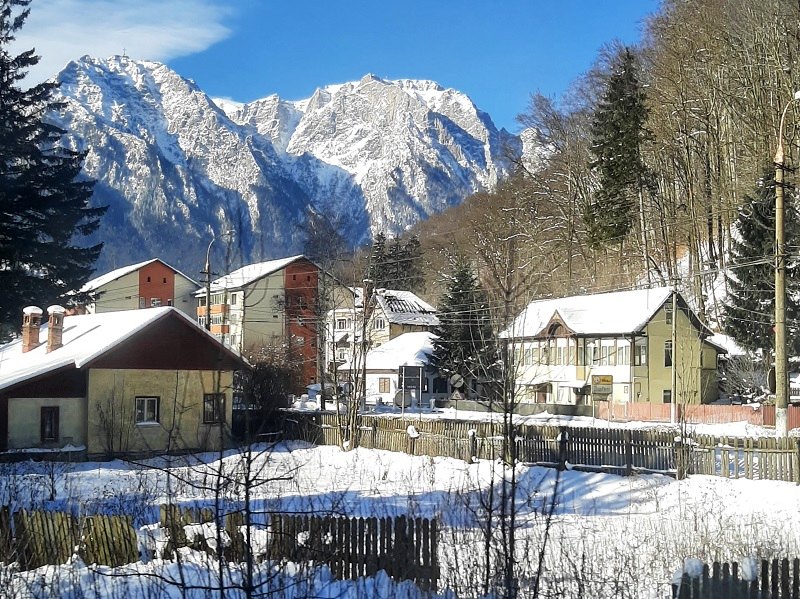
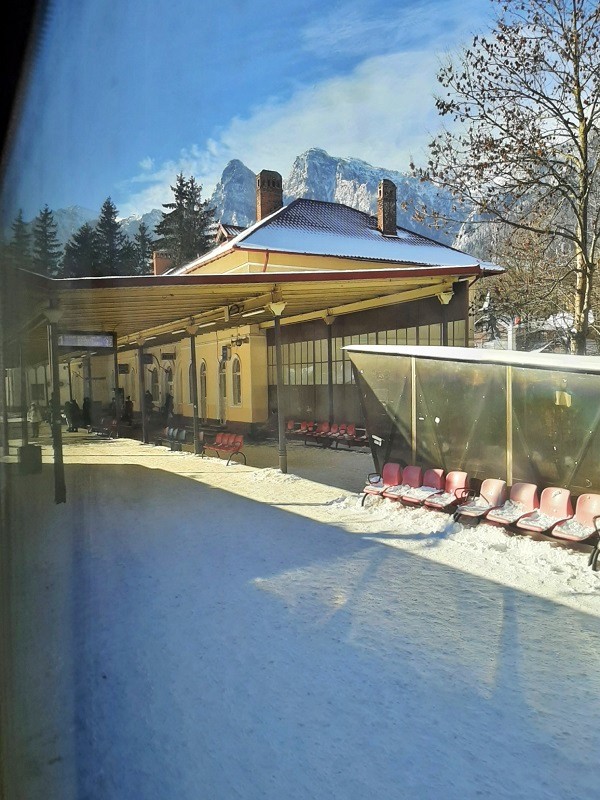
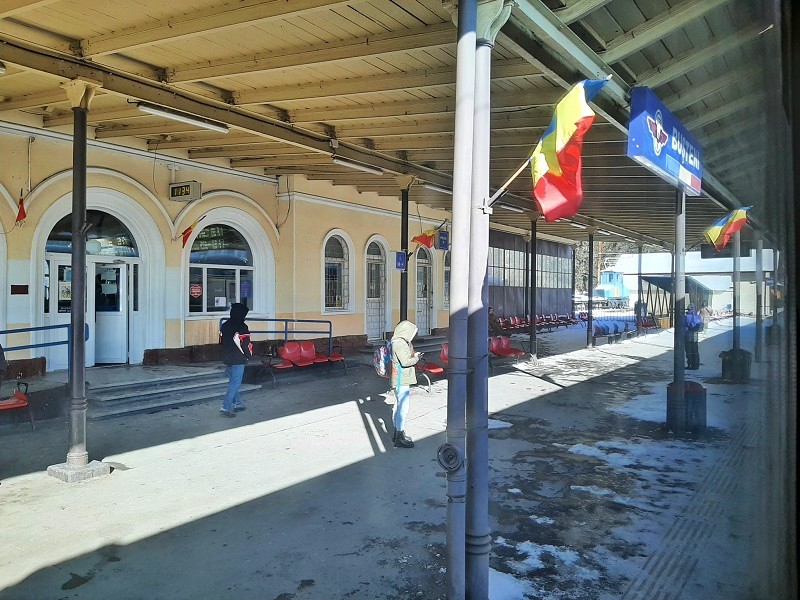
Bușteni to Sinaia
Perhaps the biggest highlight of the journey between Hungary and Romania on the Ister night train is the stretch of railway between Bușteni to Sinaia.
Here, you have some uninterrupted, breathtaking views of the majestic Carpathian Mountains.
On this beautiful, crisp winter day the views really were absolutely stunning.
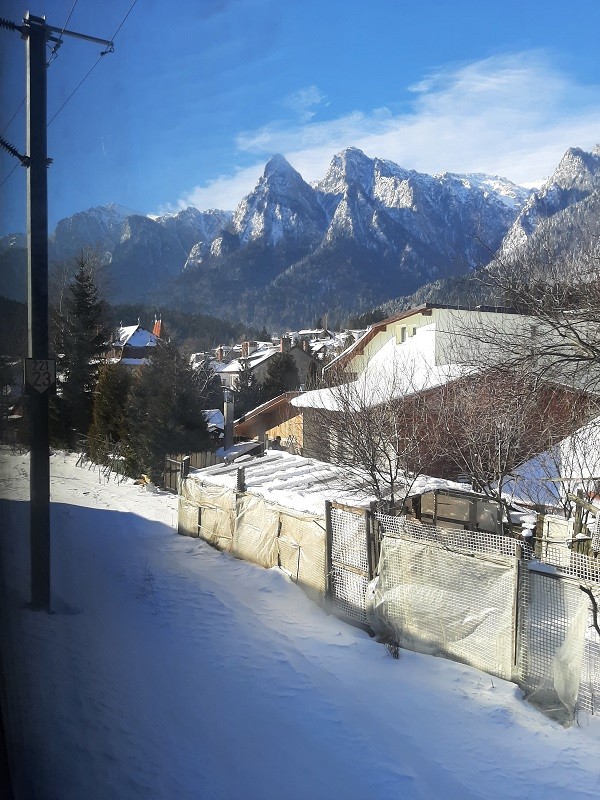
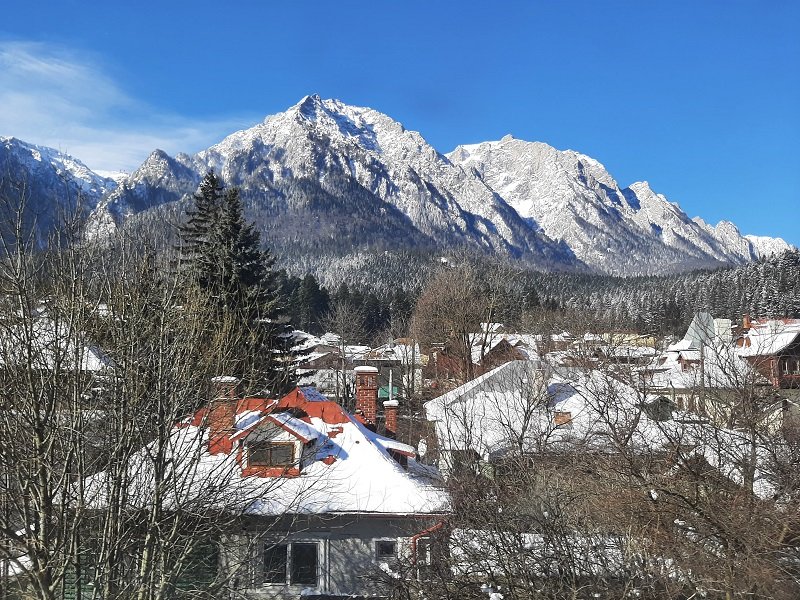
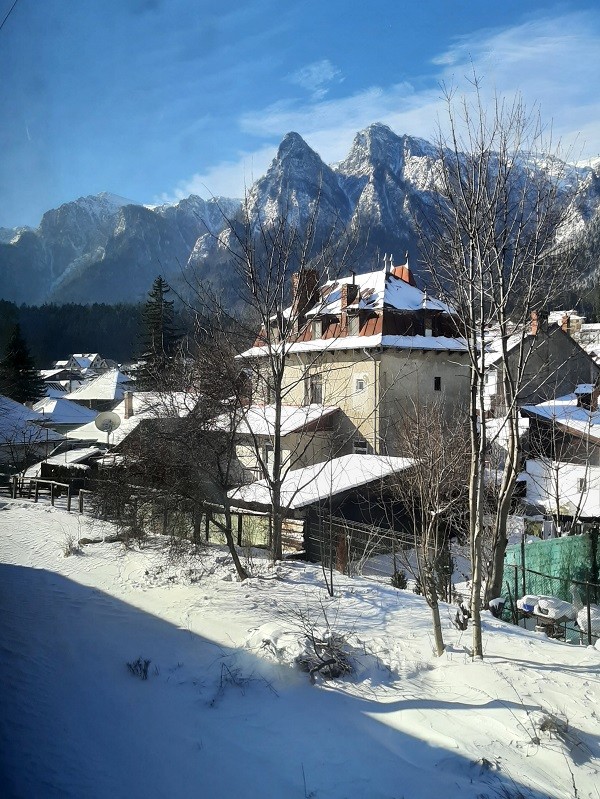


Sinaia
Sinaia is the southernmost of the Carpathian mountain resort towns and another important stop for the Ister train.
The train station of Sinaia has a rather grand feel, which it owes to its royal history.
Sinaia is home to stunning Peleș Castle, which served as the summer residence for Romania’s former royal family.
Apart from Peleș Castle, sights such as Sinaia Monastery and the old casino are well-worth visiting in this beautiful mountain resort town.

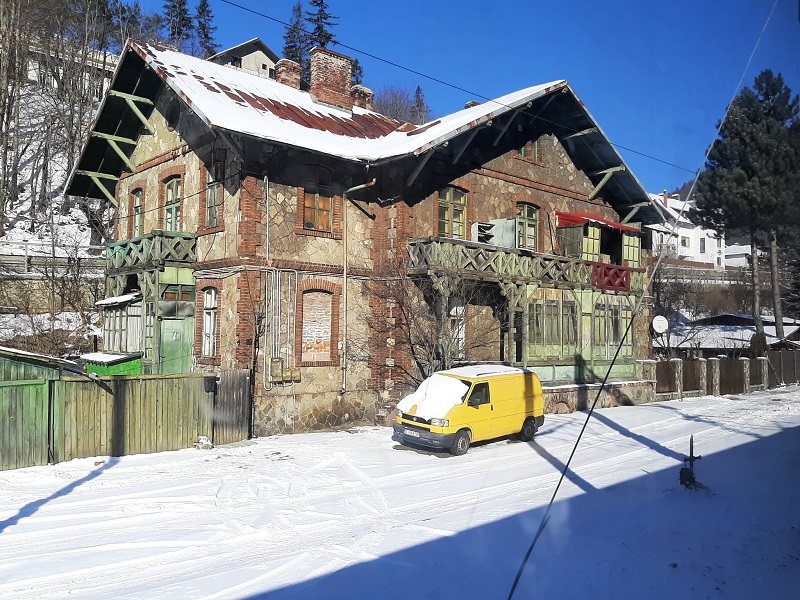

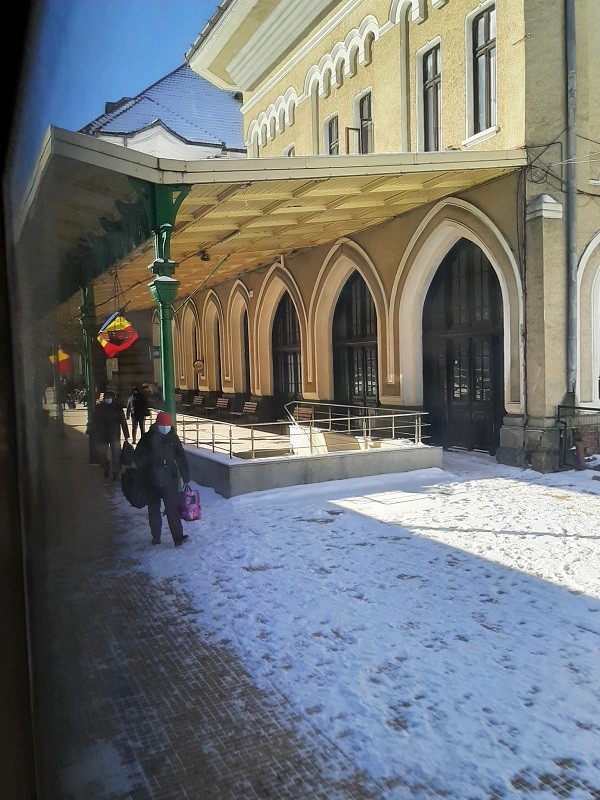

Onto the Wallachian plain
After the stop in Sinaia, the Ister night train will descend down the mountains through the narrow gorge of the Prahova River.
As the train continues its journey, the Carpathian mountains gradually turn into foothills around Câmpina and the valley begins to widen out.
At this point of the night train journey from Hungary to Romania we have reached the Wallachian plain, which is almost as featureless as the Hungarian landscape at the start of our trip.
Besides Câmpina, the Ister will also stop in the city of Ploiești, which is well-known for its oil fields and industry.
Around the city you can see plenty of oil refineries and freight trains with tank cars.


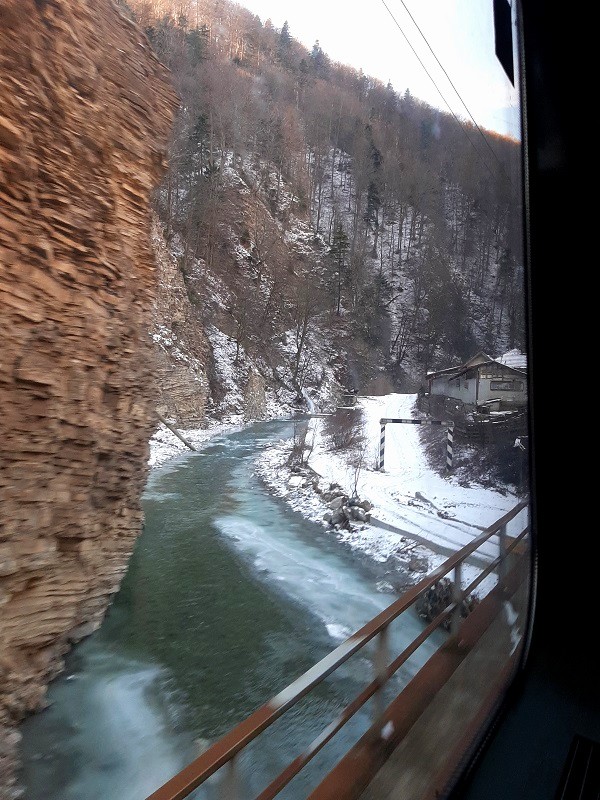

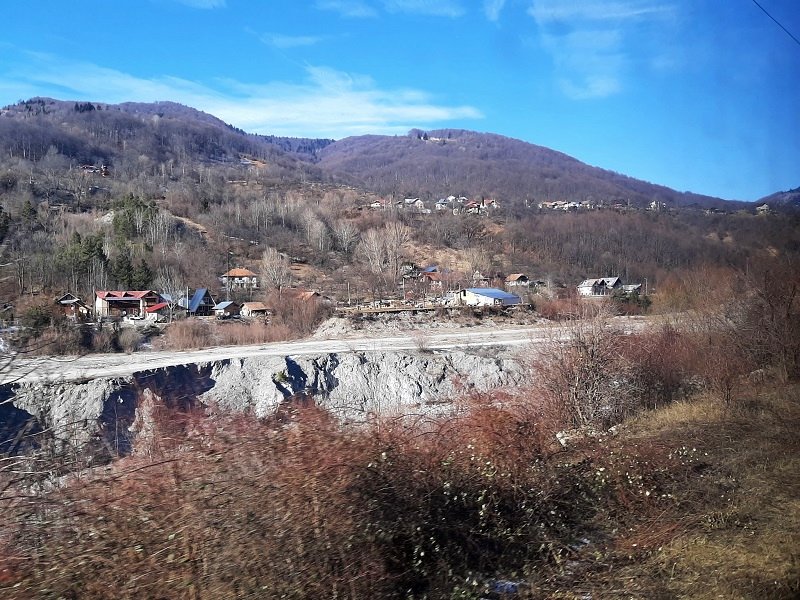

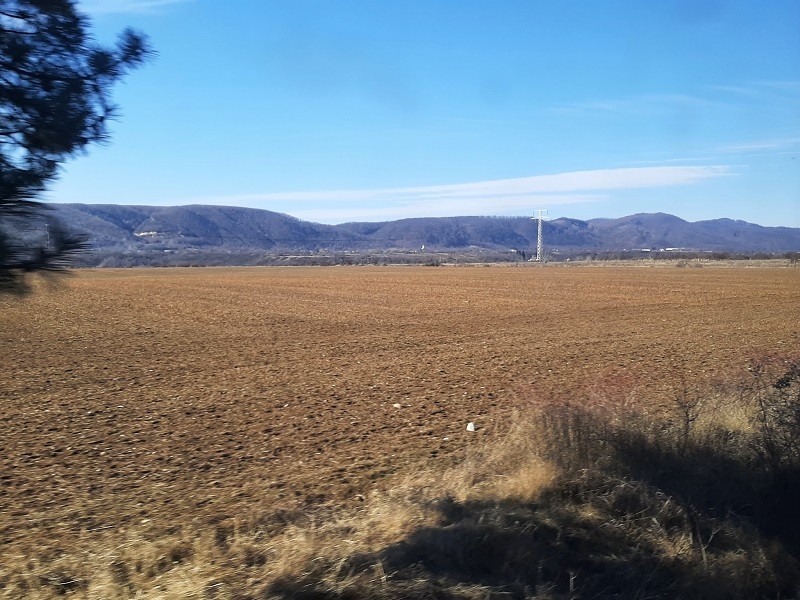


Arriving in Bucharest
From Ploiești, the final stretch of the epic train journey to Bucharest takes only 40 minutes, but it can seem like an eternity due to the boring views outside the window.
At last, we approached the outskirts of Bucharest.
With an hour delay, the Ister night train eventually rode into the station of Bucharest Gara de Nord, bringing the beautiful journey between the capitals of Hungary and Romania to an end.
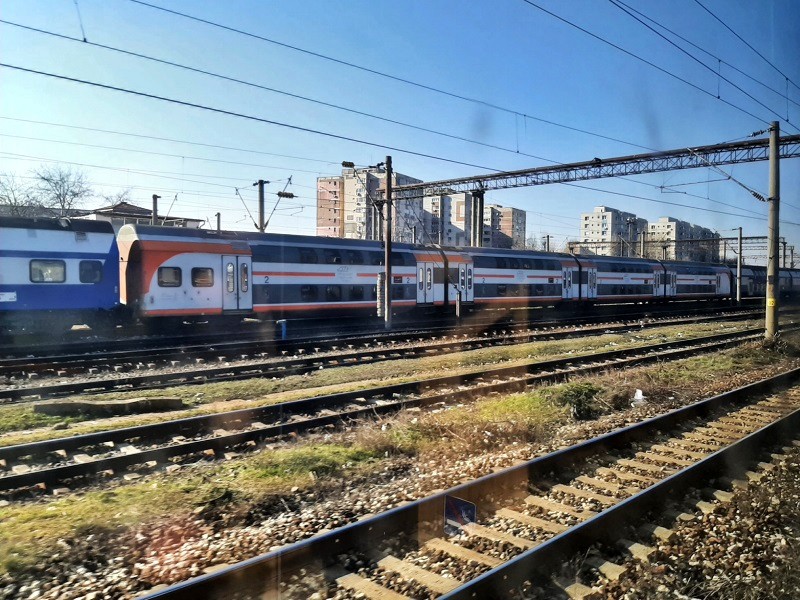
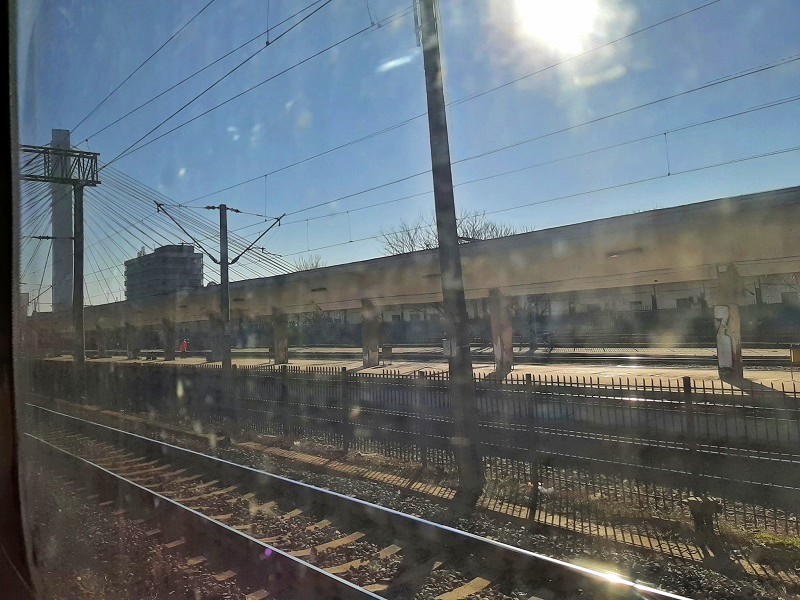
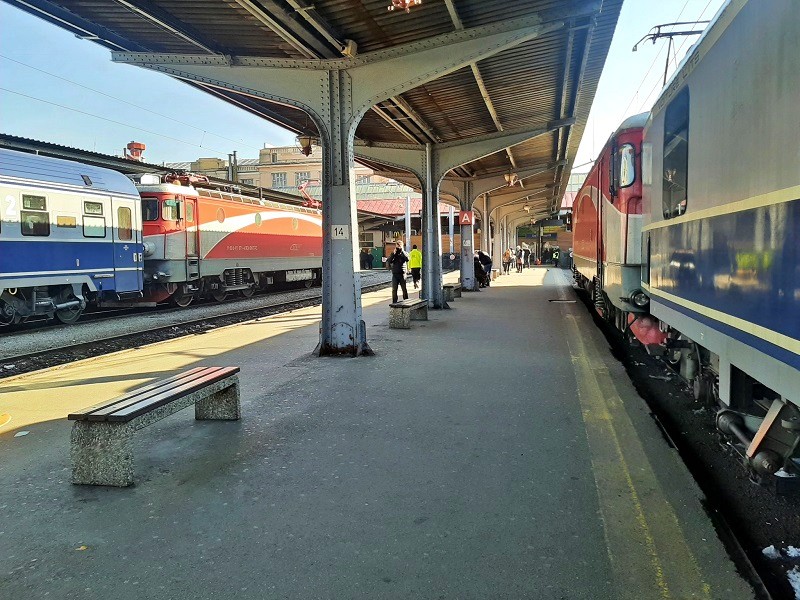
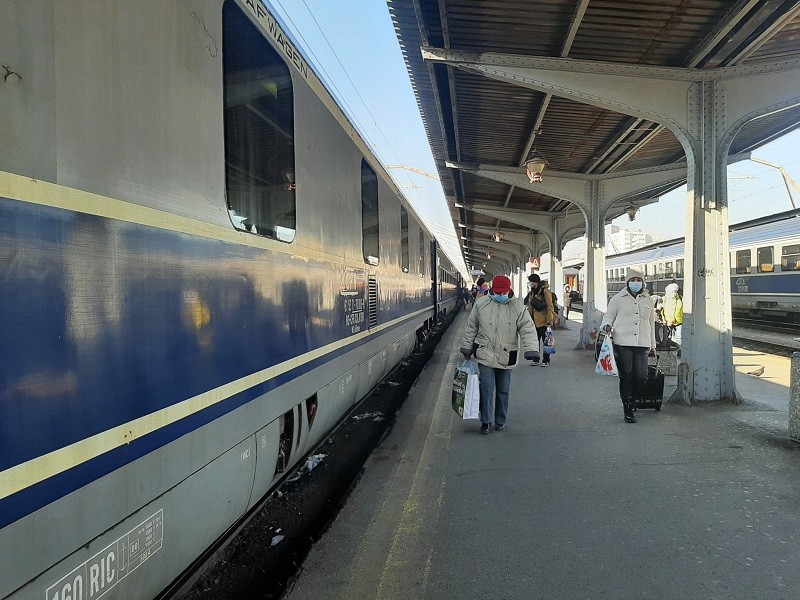
Conclusion
A journey on the Ister night train between Budapest and Bucharest makes for a wonderful trip with some beautiful views from the window.
The absolute highlight of the journey on the Ister night train between Budapest and Bucharest are the stunning views of the Carpathian Mountains, which you will first travel parallel to and eventually cross between Brașov and Bucharest.
The Ister night train uses comfortable CFR (Romanian Railways) rolling stock in all classes, whether you go for a simple 2nd class seat, a couchette or your own private sleeper compartment.
Ticket prices for the Ister night train are already quite affordable and there are some split ticketing tricks that can bring the cost down even further, although I understand that this may not be everyone’s cup of tea.
In any case, travelling on the Ister train makes for one of the best ways to get from Hungary’s capital of Budapest to cities in Romania such as Sibiu, Brașov and Bucharest.
End of the trip
The journey on the Ister night train from Hungary to Romania marked the end of my epic 5,200-kilometre rail trip from Bucharest to Mariupol and back.
If you missed any of the previous chapters of this trip report, you can find the trip report index below.
Make however sure you read the epilogue as well, as just weeks after my train trip to Ukraine, Russia invaded the country, sparking a large refugee crisis.
Thanks for following me along this entire trip and feel free to leave a comment or subscribe to our Twitter, Facebook or Instagram pages to receive instant updates when a new article is posted online!
A simple like, follow or comment really makes our day and does help supporting this website.
Trip report index
This article is part of the ‘Mail From Mariupol: A Pre-War Trip to Ukraine by Train‘ trip report, which consists of the following chapters:
1. Review: Night Train Bucharest to Sighetu Marmatiei, Romania
2. At the Sighet-Solotvyno Border: From Romania Into Ukraine
3. Review: Solotvyno to Rakhiv by Bus
4. Review: Hotel Europa, Rakhiv, Ukraine
5. In the Land of the Hutsuls: A Visit to the Town of Rakhiv
6. Rakhiv to Mariupol: Riding Ukraine’s Longest Train Route
7. A Tribute to Mariupol: Memories of a Pre-War Visit
8. Ukrainian Railways Mariupol to Kiev Train in Platzkart
9. Review: Ibis Kyiv Railway Station Hotel
10. Review: Kyiv-Pasazhyrskyi Station First Class Lounge
11. Ukraine Night Train: Over the Mountains to Mukachevo
12. Review: Latorca InterCity Train Mukachevo to Budapest
13. A Short Stopover in Szolnok, Hungary
14. Review: Ister Night Train Budapest to Bucharest (current chapter)
15. Epilogue: Witnessing the Ukrainian Refugee Crisis at the Border


Hi. Thanks for a great and detailed review. Do you know if there might have been changes in the schedules or routes since you wrote this review? Maybe I am looking at the wrong places, or reading the info wrong, but I can’t find any sleeper compartments from Curtici to Bucharest on CRF’s site, although there is a night train from Budapest to Bucharest which passes Curtici.
The current price with MAV is €146 for a private sleeper compartment from Budapest to Bucharest. Would have been nice to buy a ticket intead from Curtici to Bucharest.
Any ideas?
The schedule is still the same via Curtici! What has since changed is that CFR no longer sells domestic sleeper tickets for this train. I also was forced to pay that full price when I took the Ister again last week! If you want to take this train you have no alternative but to pay this price.
Split ticketing does still work if you take an alternative route. The Muntenia train (IC 79) departs Budapest Keleti at 3.10pm, arrives in Bucharest at 8.06am the next morning. Only wagons with 2nd class seats plus couchettes do the entire trip. However, once across the Romanian border in Timisoara a sleeper wagon is attached to this train.
So you simply book a 2nd class ticket Budapest-Timisoara on this train (MAV is often cheapest, but do compare prices with CFR) and book a sleeper ticket Timisoara-Bucharest on IRN79 (the same train) on the domestic CFR website. Once you arrive in Timisoara at 9.35pm, you simply get off and watch how the sleeper wagon is attached to this Budapest-Bucharest train! You can then board your sleeper wagon and have a good night’s rest until Bucharest.
It cannot go wrong as even when the inbound train from Budapest is heavily delayed that Timisoara-Bucharest sleeper you booked will wait for it as it will always be attached to the Muntenia train from Budapest.
Hello, first of all I would like to thank you for the excellent articles. Unfortunately, I only discovered this website after buying a driving license
Buying a ticket for the trip from Prague to Brasov was not comfortable. As I was told by the cashiers, they have very little information about the Dacia train from Romanian Railways.
At the international checkout, the saleswoman did not have full access to the reservation system. The only thing she could influence was whether I wanted a bed down or up.
I didn’t have any information at all whether he was being charged all the time when driving a restaurant or bistro bus, which I would take for granted after such a long period of time.
there was no information available as to whether the train was equipped with Wi-Fi, a normal thing that a person would assume in 2023, especially when Czech Railways and regional trains are already standard, as well as classic electric gtak and usb plugs for charging devices.
As you found out when searching on the Internet, the price of the sheet for about 400 euros does not include any refreshments except maybe 0.5 l of water, everything is in the back, back slippers or a towel in the sleeping compartment.
Do the Romanian carriers think that people will stock up on food? Just for information, the private carrier Regiojet provides unlimited consumption of free hot drinks and refreshments at very good prices for the entire duration of the journey on all trains.
Other carriers also provide very high-quality food. I don’t understand why Romanian carriers can’t do it, too?
In passenger trains there is a shower and a toilet in every compartment. As I found out in Dacia, it’s a matter of luck and chance.
In the videos on YouTube, the wagons look very moder
I wonder if there is an employee of the security agency present in each carriage to ensure the safety of passengers
I very much doubt the observance of the traffic advice, as I learned that this train was delayed by 2 hours and there is no exception.
I would like to ask you how the continuity of the train is ensured in the event of a delay or overnight accommodation when the train arrives with a long delay at night,
Do you know what is the worst? The communication of the Romanian carrier. I wrote several emails to not one of them received a reply. It seems that it is not possible to send a direct message on Facebook. When a comment is written on the carrier’s contribution, the carrier never responds, the Hungarian freight charges are written off within approx. 3 hours
I’m traveling on Monday 16.10 and I’m very worried about the trip. I guess I should have bought a plane ticket. It would have been faster, cheaper and more comfortable for me.
When did you take the journey?
I truly enjoyed reading your review of the overnight train from Budapest to Bucharest. It looks like a fun adventure. The pictures are beautiful. I have a few questions. I am used to riding overnight trains in the US where there is a dining car, snack car, and observation car. Part of the fun of train travel is walking through the train and sitting in different places like the observation car or snack car for part of the ride. Is any of this possible on this train? or on any European overnight trains? Or are passengers expected to stay in their sleeping car room for the whole trip? Is there a sleeping car attendant who makes sure the rooms aren’t robbed? or do you get a key to your sleeping car room? Would I have to buy food to bring with me for the entire train trip? That would be two meals, dinner and breakfast. That is an inconvenience .
Thanks Steve. To answer your question, the Ister doesn’t have a dining car. When it comes to night trains in (or to/from Romania), only the Corona night train which I mentioned in the article has an (excellent!) dining car. Also the ‘Dacia’ night train (Vienna-Budapest-Brasov-Bucharest) has a full dining car attached, but only between Vienna and Budapest (so only good for dinner if you travel from Austria to Romania, or breakfast if travelling from Romania to Austria). The Dacia has a bistro car attached within Romanian territory, but you can only buy basic sandwiches, crisps, and drinks there.
You can lock the door of your sleeper compartments from the inside, so nobody can get in while you are asleep. When walking to the dining car, you can simply ask the carriage attendant to lock the door with their keys while you are away (but even then it’s always good to take valuables with you). More modern night trains (new generation Nightjet, Caledonian Sleeper etc.) will have a keycard by which you can lock the doors yourself from the outside too.
In practice, it means you indeed stay pretty much in your own sleeper compartment or seat when travelling on European night trains, as the great majority won’t have a dining car attached. Of course, you can walk up/down the train or stand in the aisle, but that’s it. Observation cars (like found in the US or Canada) are unheard of in Europe, and you will certainly not find them on sleeper trains here. However, some daytime trains in Switzerland and Austria have panorama wagons with large, panoramic windows/roofs. However, even these work differently than their American counterparts, as they have standard 1st/2nd class seats in them that can be reserved just like any other seat in the normal coaches that make up these trains, so it’s not really an “extra” wagon for the convenience of all other passengers.